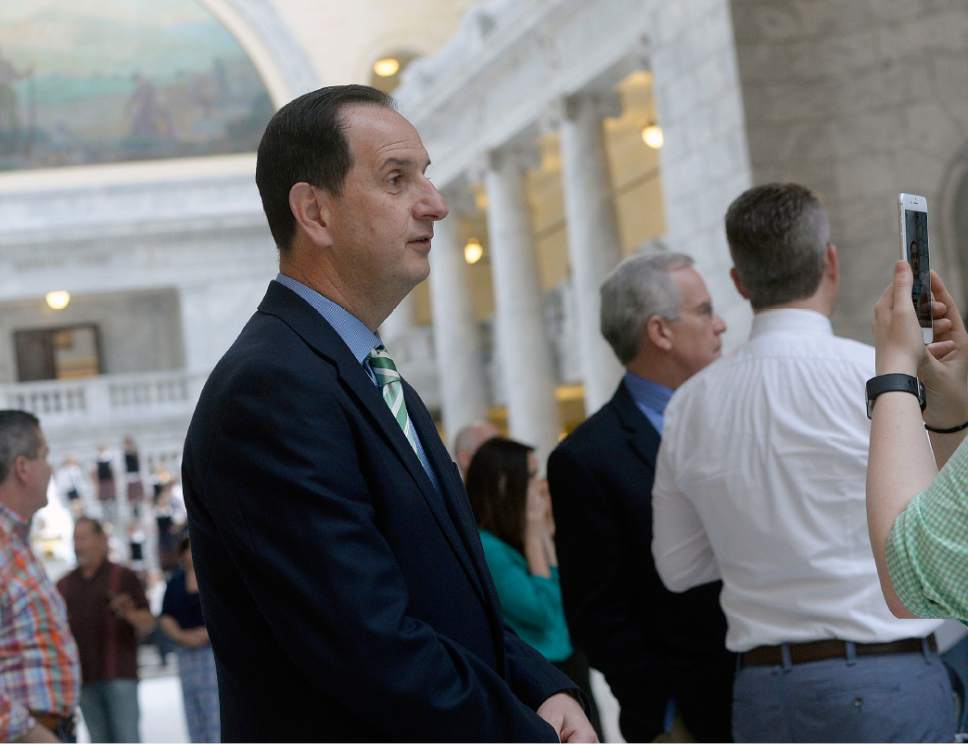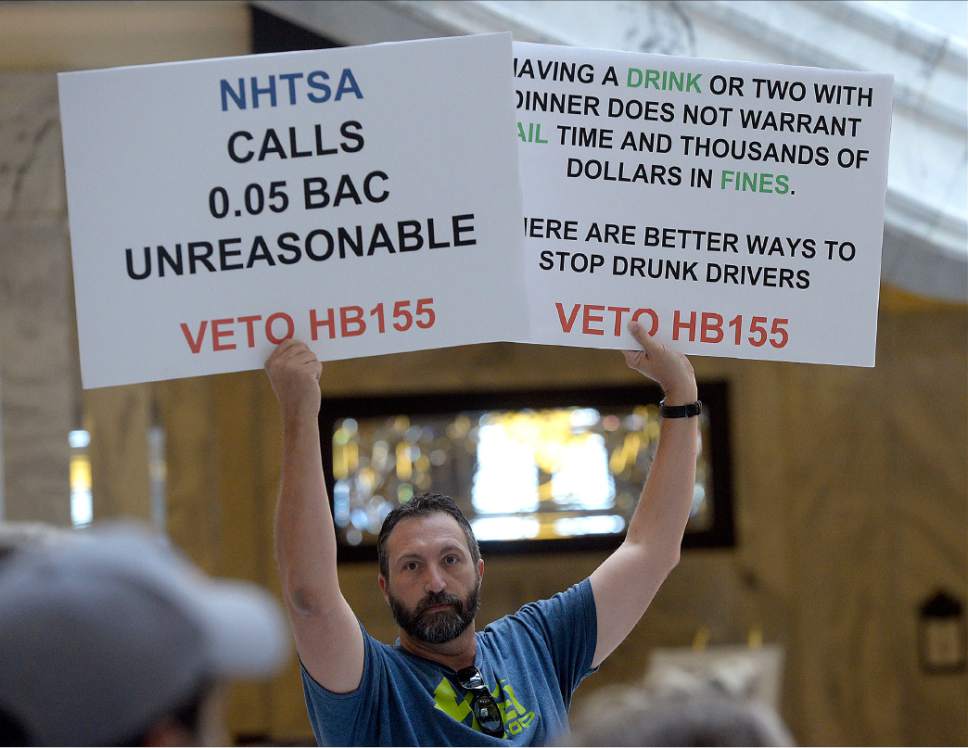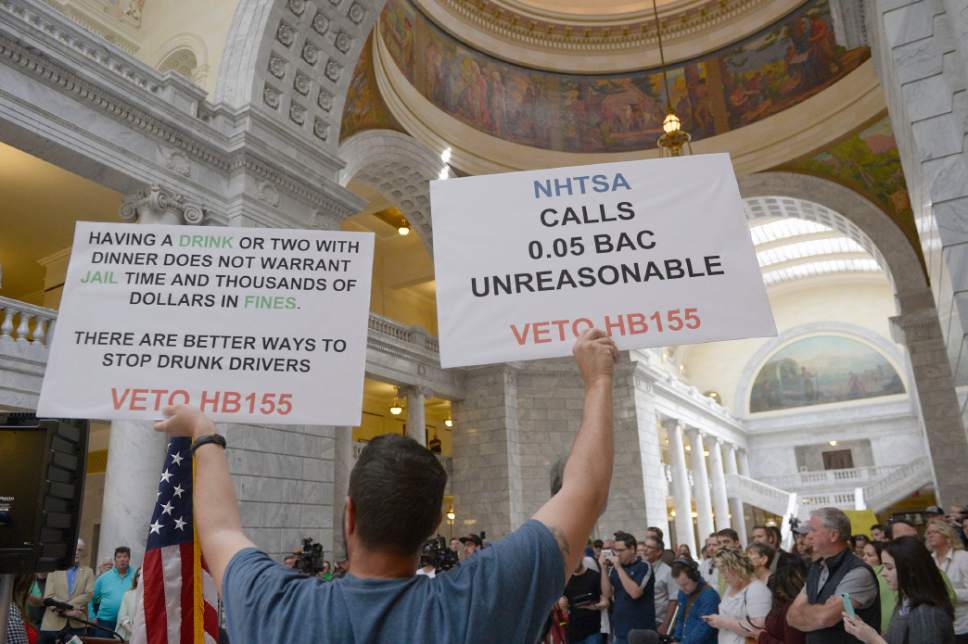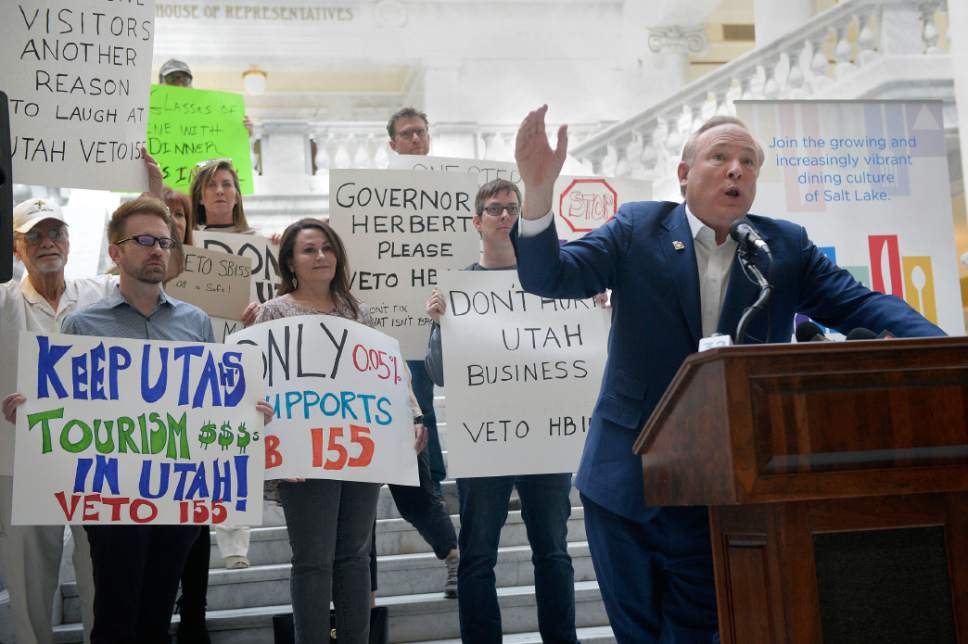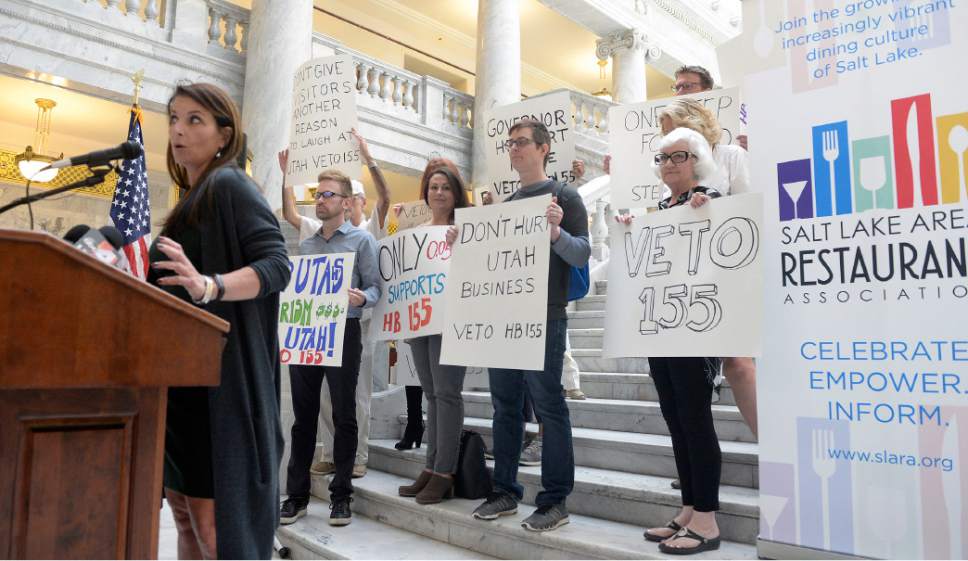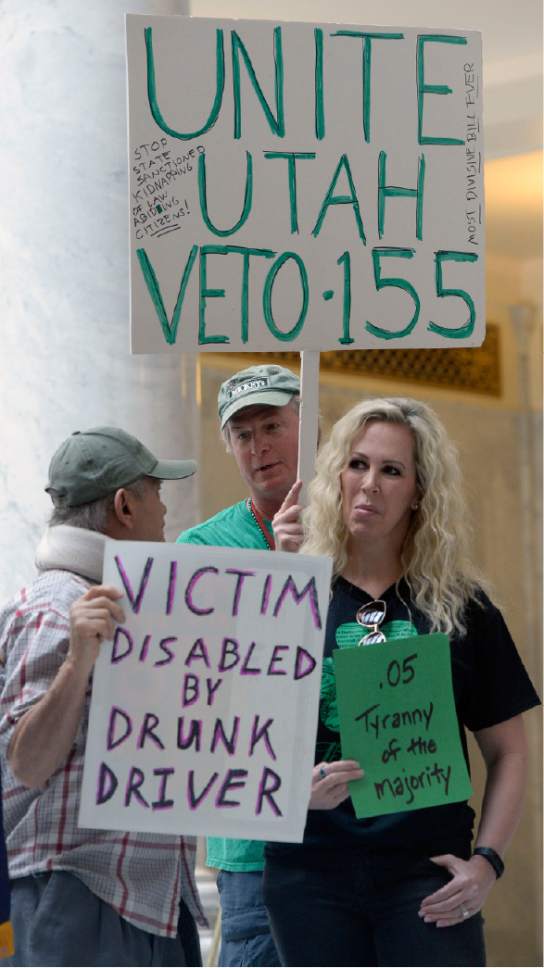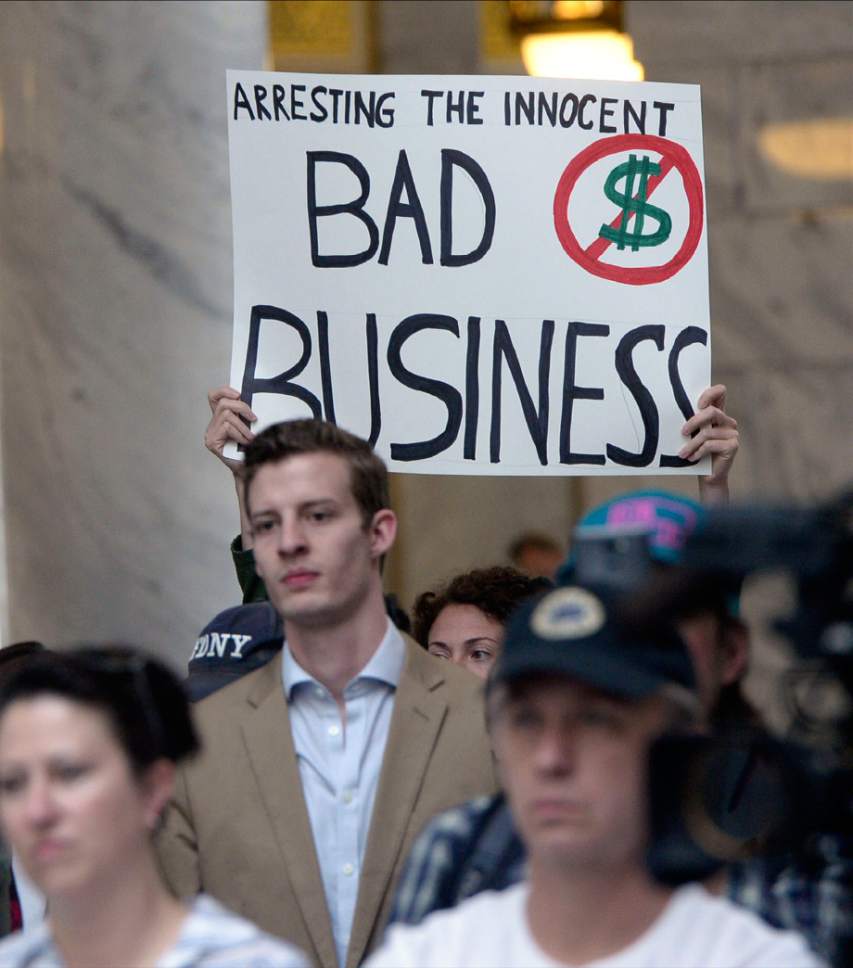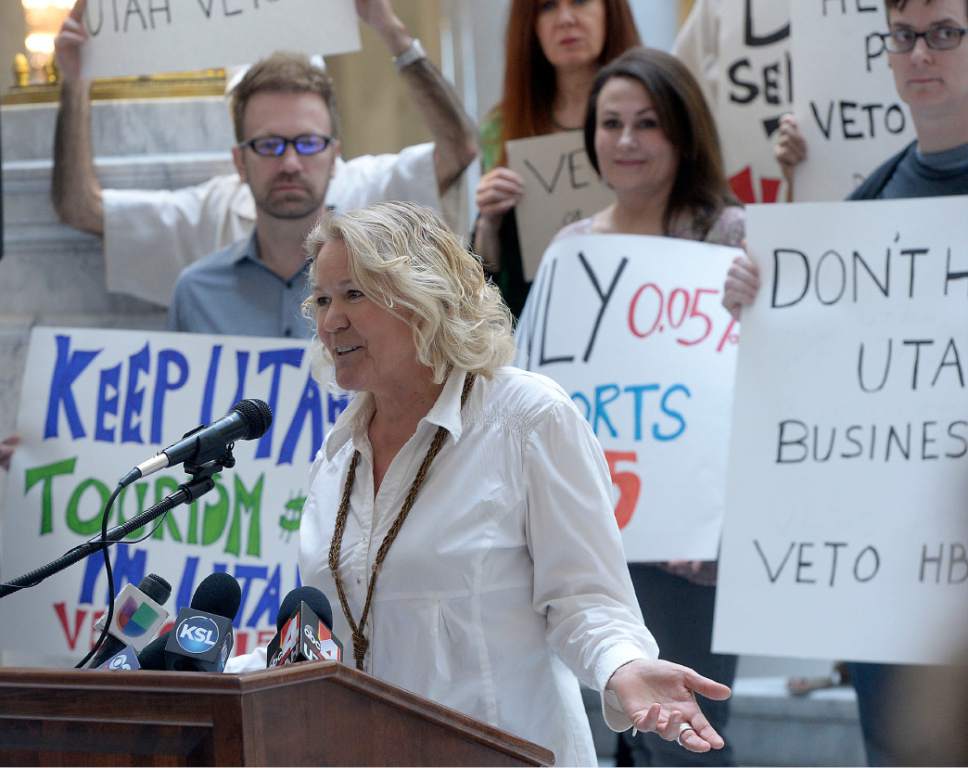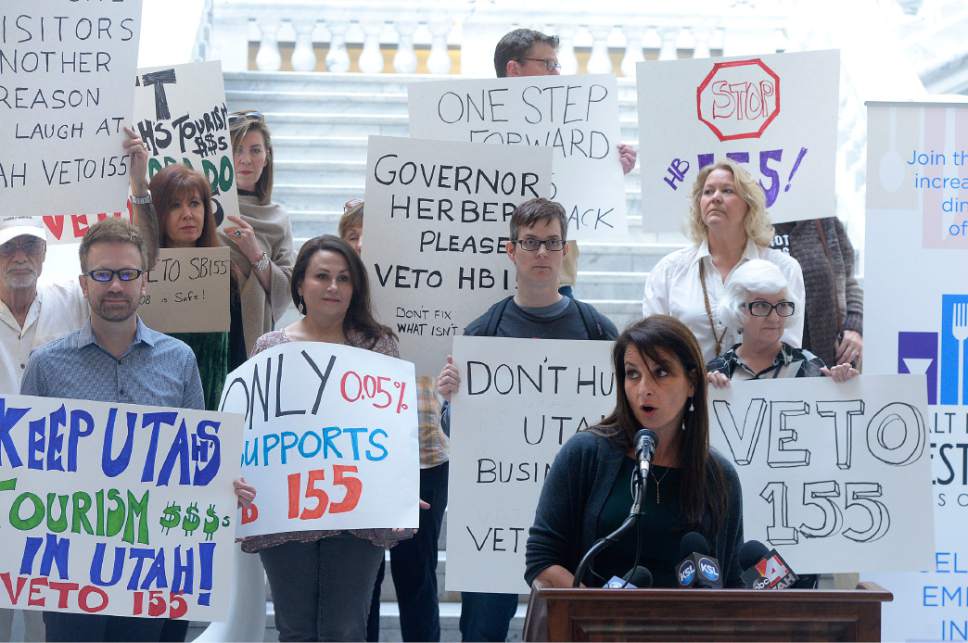This is an archived article that was published on sltrib.com in 2017, and information in the article may be outdated. It is provided only for personal research purposes and may not be reprinted.
As restaurants and alcohol marketers pressure him to veto a bill that could make Utah's drunken-driving laws the toughest in the nation, Gov. Gary Herbert said Friday he is now carefully evaluating whether the bill has unintended consequences.
"Governor Herbert is carefully evaluating how the proposed reduction in blood alcohol content (BAC) limit for driving under the influence would affect public safety and whether there may be unintended consequences," said his spokesman, Paul Edwards.
"He and his staff are evaluating data from public-safety agencies and will meet early next week with representatives from the Utah hospitality industry," he said about HB155, which would lower the BAC from 0.08 to 0.05.
Meanwhile, the Salt Lake Area Restaurant Association held a rally at the Capitol on Friday, saying the bill would hurt tourism, chase away new companies and hurt the economy. The American Beverage Association also has run full-page newspaper ads seeking a veto.
During the Legislature, Herbert offered support for the bill — saying it would send a strong message not to drink and drive. He noted the 0.05 limit has worked well in the 100-plus countries that already use it, and said he saw no reason that it would not do the same here.
The restaurant association's rally attracted about 100 supporters to the Capitol Rotunda on Friday — and some counterprotesters, including Rep. Norm Thurston, R-Provo, who sponsored the bill and was on hand to rebut arguments against it.
"What this says is that drinkers are not welcome," and the legislation will chase away tourists and new firms, said Michele T. Corigliano, executive director of the Salt Lake Area Restaurant Association.
"It absolutely will hurt restaurants," she said, saying many customers have said they "are better off to stay at home and have dinner parties" than risk a DUI under the tougher standards.
Sen. Jim Dabakis, D-Salt Lake City, told the rally that with a 0.05 limit, one glass of wine with dinner "would make a 120-pound woman likely to be DUI. That is not good policy. It is simply wrong, and it will make us the laughingstock of America."
He said he's seen social media messages already lampooning Utah by saying, "Go to Utah to vacation, leave on probation," and one that said the new "mighty five" in Utah is not its five national parks but the 0.05 limit.
"Like asking the NBA to come up with new rules for lacrosse, having Utah be on the cutting edge of national liquor laws simply doesn't make sense," Dabakis said. He would prefer that other states attempt a change first — then have Utah follow only if data indeed show that it saves lives.
Ema Ostarcevic, founder of Search Group Partners, told the rally that her head-hunting company finds it difficult to recruit top talent from many fields to Utah. She said the No. 1 objection is "that our culture, specifically our liquor laws, are too repressive and unwelcoming."
"It seems sometimes as though we have become so accustomed to being a laughingstock that we have to act to ensure we remain one. It's like support for laughingstock syndrome. Can't we please finally break the syndrome?" said Doug Hofeling, chief operating officer for the Salt Lake Brewing Co.
Thurston, author of the bill, said, "The pressure [to veto] is all coming from one place: people who are in the business of selling alcohol."
He adds "I think there is broad-based support from families, community members. It's an odd thing, people are more likely to call when they are upset about something than when they are pleased."
Thurston said that a 0.05 limit is "not a novel concept" and already is used by most of the world. "Eighty-five percent of the world's population lives in a place where the standard is 0.05 or lower. So it's not weird."
He added that in 1983, Utah was the first state to lower the BAC limit from 0.1 to 0.08 — and all other states later followed. "I haven't seen any evidence that there was any impact at all on tourism. I haven't seen any evidence that any restaurant went out of business because of that."
He noted that representatives of the National Transportation Safety Board testified twice for his bill, saying data show that a 0.05 limit indeed saves lives and discourages drinking and driving.
Thurston said that his bill would not take effect until Jan. 1, 2019, so it could be tweaked over the coming year if any problems are identified. "But that discussion will be based on evidence and data, not on money and persuasion."
At the rally, Tali Bruce, franchise owner of the Bout Time Pub & Grub sports bar, held a sign that said ".05 is the tyranny of the majority," and said the new law targets "people that don't [subscribe] to the dominant religion."
The Church of Jesus Christ of Latter-day Saints, which teaches against consumption of alcohol, claims membership of more than 60 percent of Utah residents. Nearly 90 percent of state lawmakers are Mormon.
"There's no scientific evidence that our roads are any safer at 0.05 versus 0.08 and so it's really just to send a message, which isn't friendly to business," Bruce said.
Another protester, Jerry Fletcher of Sandy, said the bill would "criminalize people for having a drink. I often go to have a drink for dinner and I don't want to have to worry about being prosecuted."
— Tribune reporter Jessica Banuelos contributed to this story


